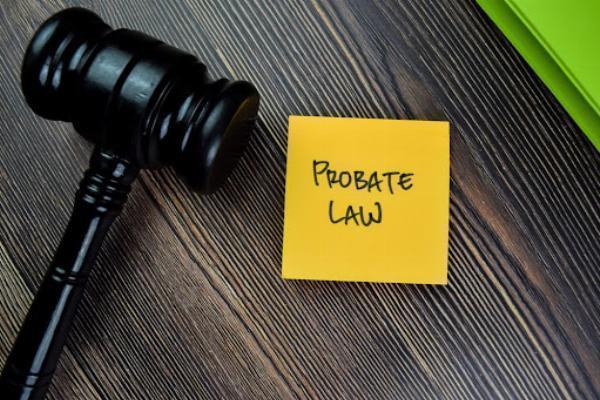Legal Aspects of Harris County Probate: What You Need to Know

Strong 8k brings an ultra-HD IPTV experience to your living room and your pocket.
The process of probate is a complex process that can also be emotionally difficult, particularly when you are trying to cope with losing a beloved person. For Harris County, Texas, knowing the legal aspects of probate is essential to ensure an easy transfer of property and ensuring the desires of the person who died. This article will take you through the fundamental aspects in Harris County probate, providing important information to benefit you to understand this complicated legal procedure.
Understanding Probate in Harris County
Probate is the legal procedure for administering the deceased's estate, settling any debts and disbursing estate assets to beneficiaries. The probate process in Harris County, probate matters are managed through the Harris County Probate Courts. The courts are specialized and control the validating of wills, the appointment of administrators and executors and overall administration of estates.
It is important to understand that the Harris County probate process can differ in its complexity based on the amount of estate, the presence of an effective will, as well as possible disputes between beneficiaries. If you're an executor administrator or beneficiary, getting familiar with the basic principles of the law governing probate for Harris County is essential for managing the procedure efficiently.
Types of Probate Proceedings in Harris County
Harris County has a range of probate processes to suit diverse circumstances:
Independent Administration: It is the most commonly used and popular method used in Texas. It permits for a minimum amount of oversight by the court and reduces the time and cost associated with probate.
Dependent Administration is used in cases where there is no will or the will does not help in providing an independent administrative system. This type of process will require more than just supervision and involvement by the court.
Muniment of Title is a simple procedure that is used in the event of a will. there are no outstanding debts, except for the ones secured by real estate as well as no requirement to administer.
Small Estate Affidavits: Available to estates with a value of $75,000 or less. Excludes the homestead property and exempt properties.
Affidavit of Inheritance: Use predominantly for real estate transactions in cases where there's no will, and an official administration is not required.
The knowledge of these options will benefit you to decide on the appropriate probate method to suit your particular scenario.
The Role of Executors and Administrators
Executors (named in the will) and administrators (appointed by the court in cases where there is no will) are key players within their roles in the Harris County probate process. They are responsible for:
Finding and protecting the estate of the deceased
Notifying creditors of your intentions and paying any valid outstanding
Tax returns that are required to be filed
Distribution of remaining assets to the heirs, beneficiaries or beneficiaries
Within Harris County, executors and administrators are required to be certified by Harris County before they can perform their duties. That means they have to be 18 or more years old, have a sound mind, not be found guilty of a crime, and competent to fulfill their obligations. The court might demand a bond in order to secure the estate's assets. However, the requirement is often removed by the will.
Timelines and Deadlines in Harris County Probate
Respecting legal deadlines is vital during the probate process. These are the key dates to keep in mind:
The process of preparing the will is similar to that in Harris County, the will is required to be registered with Probate Court within 4 years from the date of death.
Probate requests: They are to be done immediately, usually within 30 days after the passing of the.
Inventory, appraisement and list of claims must be submitted within 90 days of appointment of the executor or administrator.
Creditor claims: Secured creditors are given up to four months in which they can file claims for repayment, while creditors with no credit have 120 days to file claims.
In the event of a delay, it can hinder probate procedures and could cause legal repercussions. It's recommended that you work with an experienced probate attorney in order to assure the compliance of all deadlines.
Probate Without a Will in Harris County
If someone dies in Harris County without a valid will within Harris County, they are believed to have died "intestate." In such cases, Texas intestacy laws determine what assets the deceased's estate will be allocated. It is usually a matter of:
The process of submitting an application to be considered for administration
The process of determining heirship is conducted by a formal court proceeding
Nominating an administrator
Distribution of assets like with state law
Intestate succession is often a complicated process particularly in family situations that involve distant relatives. In most cases, it pays off with outcomes that do not be in line with the wishes of the deceased. This highlights the necessity of having a legally legal will.
Probate Disputes and Litigation
Although probate proceedings generally push on well, disagreements may occur, resulting in litigious situations. Some of the most common issues encountered that arise in Harris County probate courts include:
Can contests be brought to question the legitimacy of the will
Inconsistencies in the interpretation can provision
The allegations of an executor or administrator's wrongdoing
There are disagreements among beneficiaries and the heirs of beneficiaries
Probate litigation is time-consuming, cost-intensive, costly and emotionally exhausting. Mediation is frequently recommended by the Harris County probate courts as a way of solving disagreements more quickly and efficiently.
Alternatives to Probate in Harris County
Although probate is a common occurrence but there are strategies to minimize or avoid the impact of probate:
Living trusts: The assets that are held in a trust can be transferred to a trust without probate.
Ownership in joint: The property that is held by the rights of survivorship transfer directly to the owner who died.
Beneficiary designations Life insurance policies, as well as certain accounts at banks that have designated beneficiaries can be kept out of the need for probate.
Deeds of transfer on death: for real estate located in Texas These deeds allow property transfer to be made outside of probate.
The implementation of these strategies will require meticulous planning and attention to the overall estate plan. Talking to an estate plan lawyer will benefit you in choosing the desirable options for your specific situation.
Conclusion
The Harris County probate process requires an understanding of the legal process, timelines as well as the possible complications. When you're planning your estate or dealing with matters of a dying loved one, knowing of the process for probate that takes place in Harris County can save time as well as ease stress and assure that the assets are distributed compatible to the wishes of the deceased or the state's laws.
Keep in mind that even though this article gives a brief overview of the legal elements that are involved in Harris County probate, each circumstance is different. The complexity of estates, family dynamics as well as unforeseen events can affect the Texas probate process. In this regard, it is often recommended to consult with an experienced probate lawyer who is familiar in Harris County probate courts.
Understanding the rights and responsibilities you have and adhering to the legal deadlines and tackling the process by taking your time and focusing on the task it is possible to get through your way through the Harris County probate system more definitely. With this knowledge, you can preserve the memory of your loved one as you fulfill the legal requirements efficiently and in a timely method.
Note: IndiBlogHub features both user-submitted and editorial content. We do not verify third-party contributions. Read our Disclaimer and Privacy Policyfor details.





